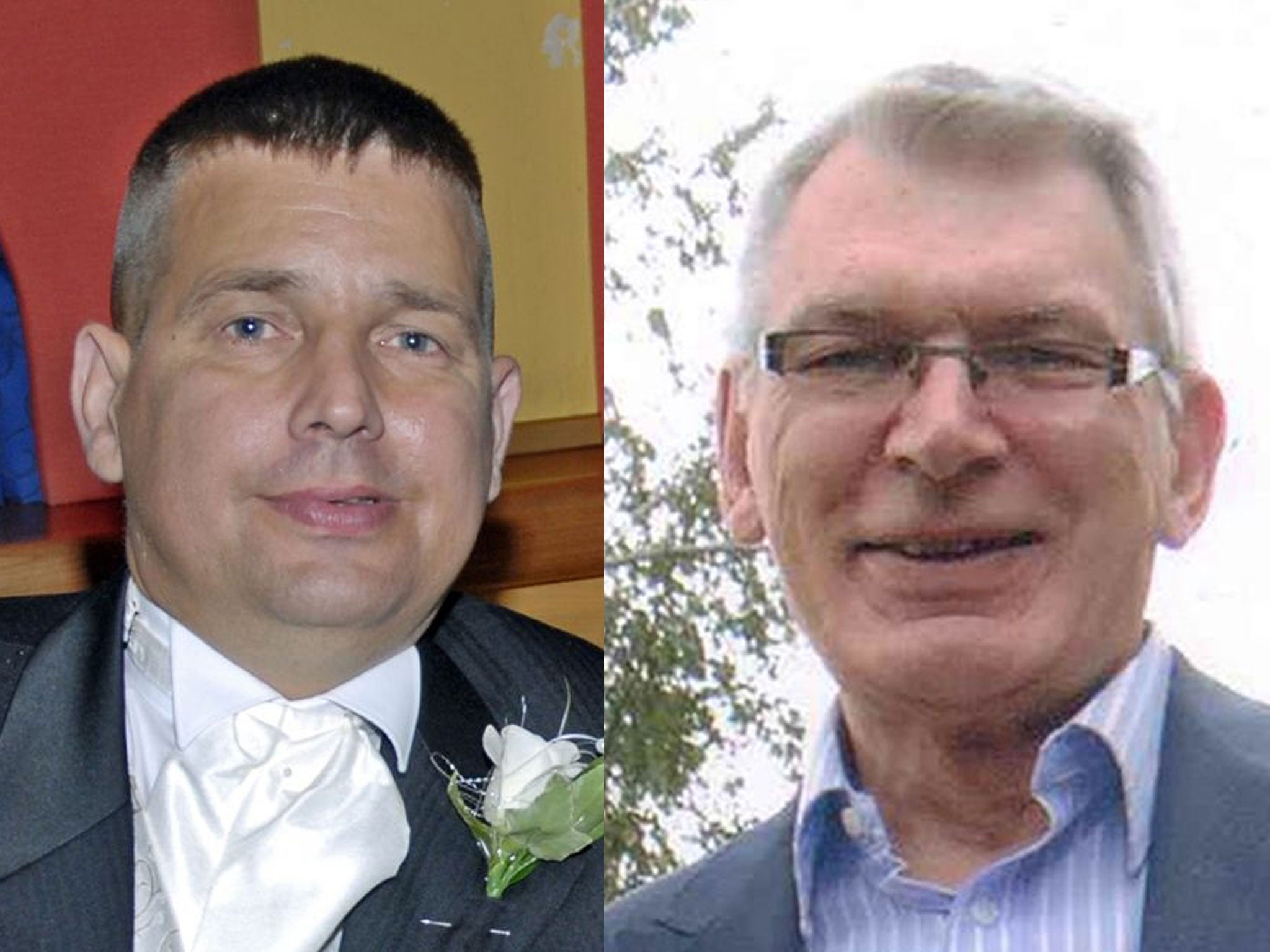Transplant patients died after receiving kidneys 'classed as "unfit" by other hospitals'
One man’s family said they would not have given their consent for the operation if they had known the full picture

Two transplant patients died after receiving kidneys from an alcoholic donor which other hospitals deemed “unfit”, an inquest has heard.
Patients Robert Stuart, 67, from Cardiff, and Darren Hughes, 42, from Bridgend, each received a kidney from the same donor, and underwent surgery at the University Hospital of Wales (UHW), Cardiff, last year. Both men died days apart in mid-December 2013.
Lab tests later showed that the pair had been infected with a deadly parasitic worm, known as halcephalobus. Histopathologist Dr Fauod Alchami found that both men's brains were swollen when they died, indicating they had suffered from meningoencephalitis - a form of meningitis.
He said on the “balance of probabilities” the worms likely came from their kidney donor, as neither Mr Hughes or Mr Stuart had any links with horses - where the parasites are sometimes found - nor any links with each other. The cases are the first ever known of human-to-human transmission involving halcephalobus.
The worm has only been found in humans on five previous occasions – all of which have been fatal.
A postmortem was not carried out on the 39-year-old organ donor from Manchester, who doctors said died from a suspected viral infection, Cardiff Coroner’s Court heard.
Concerns over the man’s death saw seven hospitals reject his organs, including transplant units in Leeds, Newcastle, Glasgow and Sheffield.
Relatives of the two transplant patients said if they had been made aware of the potential dangers, they would not have given their consent for the operations.
Mr Hughes’ father Ian said he thought the kidney had come from a healthy man who had died in a car crash, and was shocked to find the donor was an alcoholic.
He explained that after his son died, he met health officials who he said told him that “other hospitals had rejected” the donors' organs - including heart, eyes and lungs - because they had deemed them “unfit for transplant”.
At the hearing, representatives for UHW suggested to Mr Hughes senior that a surgeon had told him that the donor had died from a brain infection, which was low risk and could be treated with antibiotics, but Mr Hughes said the claims were not true.
Judith Stuart, Mr Stuart’s wife, said she had been surprised at how quickly her husband was offered a kidney transplant after two false starts, and said her husband had “coped very well” on a kidney dialysis machine.
She added that he was in such good health that nurses on the transplant ward would jokingly ask why he was there.
Mrs Stuart also disputed accusations that her husband had been told some details about the donor's alcoholism shortly before going under anaesthetic, and argued he would not have been "aware" of what was going on if the conversation did take place.
UHW specialist transplant nurse Dawn Chapman told the hearing the donor organs had been offered to hospitals under a fast track scheme, and the kidneys were initially deemed as having “poor function.”
But she explained this classification is not unusual, as organs can regenerate in a recipient.
She added that the fact that the organs were previously declined by other wards came to light after the men died, and a system had since been put in place allowing surgeons to find out whether organs they may use for transplants have been turned down by other hospitals.
The inquest continues.
Subscribe to Independent Premium to bookmark this article
Want to bookmark your favourite articles and stories to read or reference later? Start your Independent Premium subscription today.
